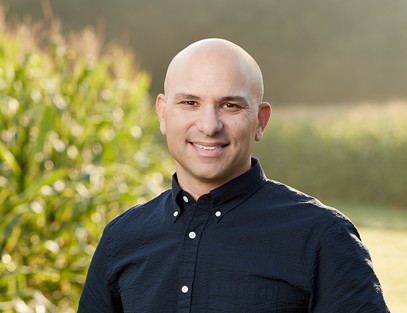
In 2009, then White House Chief of Staff Rahm Emanuel said: “You never let a serious crisis go to waste… And what I mean by that it’s an opportunity to do things you think you could not do before.”
As the U.S. faces its worst public health crisis in 100 years, politicians on both sides of the aisle are likely thinking the same way. Some may use the moment to advance their public policy agenda, others to advance their own political agenda.
Beyond the political arena, it’s worth thinking about a broader opportunity presented by the current pandemic crisis. As we reconsider our usual ways of doing business, COVID-19 creates a moment to look at ourselves in the mirror and reflect on our true purpose.
Those of us hunkering down with family think about everything from how secure our livelihood is, to how we might work differently, to the central need to keep our loved ones as safe and healthy as possible. As we look out our living room window for the third week of severe social distancing, we wonder: Are we on the right career track? Have we been committed enough to family and friends? How can we better serve our communities?
Employers, many temporarily reinventing how we deliver products and services, focus urgently on keeping our employees safe, healthy, and employed. In the service industry, it’s more apparent than ever that supporting clients is not just about helping them sell more products, or raise more money. It’s about helping them maintain continuity, and find ways to organize around a core purpose.
And for companies — even those who have long articulated a purpose beyond profit — the existential threat to business, or to the wherewithal of customers, surfaces deep questions of meaning. Thoughtful leadership means asking, who are we, and who do we want to be? — both during the crisis and beyond it.
Consider healthcare companies and hospitals. They have always held up patients as their driving motivation. But the unprecedented challenge to keep lifesaving medicines or supplies flowing to market, or to re-allocate beds and equipment to treat masses of acute patients, creates a unique moment of clarity.
It extends to all industries — food suppliers, retailers, financial services companies. I think back to the last time the nation faced a crisis of similar magnitude, when I was leading communications for Avis Rent A Car. Within hours of terrorists attacking on September 11, 2001, the company made the immediate and unprecedented decision to open the flow of vehicles throughout its entire system to the public, to get people home as quickly and safely as possible. Some small-minded companies raised their rates. Avis, true to its purpose, focused on taking care of its customers.
The life-threatening specter of COVID-19 forces a healthy introspection that can help organizations weather today, and also better understand their long-term purpose. In this moment, there are a thousand practical questions that must be answered for survival. But there are also deeper questions that may be just as important to long-term viability.
As someone whose current work already follows such things — Taft’s focus is on helping clients articulate mission and purpose — it seems clear that the current crisis may vastly accelerate a shift toward things like mission-based communications and social responsibility.
In the short term, stocks will likely get battered some more. Assembly lines will be reconfigured. Employee bases will shrink, or expand, beyond projections that seemed solid only six weeks ago. Whether “temporary” means a few months or a few years, the central question for businesses, employers, and individuals will be similar: Is this moment a brief turn from the norm, or a wake-up call to elevate our highest purpose?
For today, the priority is to navigate and survive. The pandemic threatens to consume all our energy for the foreseeable future. But remember what Emanuel observed about crisis and opportunity. It will be up to each person, each employer, and each company, to turn our response today into long-term positive impact. Let’s not waste the moment.


